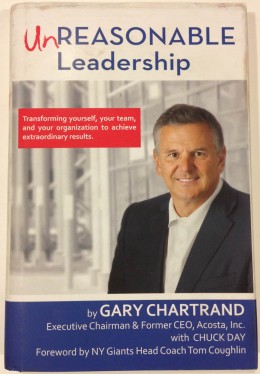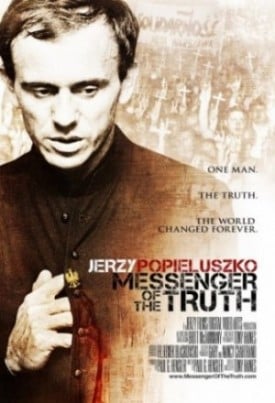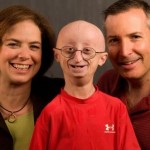 Entrepreneur and education advocate Gary Chartrand wrote a book called “Unreasonable Leadership” a few years ago and, in a sense, that concept is what drew him to the story of Father Jerzy Popieluszko, a parish priest killed by Poland’s communist government in 1984 for leading a nonviolent revolution against their oppression.
Entrepreneur and education advocate Gary Chartrand wrote a book called “Unreasonable Leadership” a few years ago and, in a sense, that concept is what drew him to the story of Father Jerzy Popieluszko, a parish priest killed by Poland’s communist government in 1984 for leading a nonviolent revolution against their oppression.
As someone who achieved business success in the grocery industry and philanthropic success through support of Catholic Charities, Wounded Warriors, and his own Chartrand Foundation which focuses on education, Gary wanted to share the lessons he’d learned in his life and career with others. He realized that “unreasonable leadership” is a common denominator among people who’ve achieved great things.
During an interview on “Christopher Closeup,” Gary explained, “It’s based on the quote from George Bernard Shaw that all progress is made from unreasonable people because reasonable people adjust to their surroundings. Unreasonable people rebel against those surroundings and they produce progress. In fact, right after I finished writing the book is when I went to Poland and it actually hit me when I went through the museum for Father Jerzy, ‘Wow. This is the ultimate unreasonable leader’ because he had the conviction and the courage to change the status quo.”
Gary took that pilgrimage to Poland in 2010 with Nancy, his wife of 38 years whom he credits with strengthening and grounding his own Catholic faith. They attended Mass at St. Stanislaus Kostka Church where Father Jerzy is buried, though they weren’t familiar with his story at the time. An English-speaking lady took them through the museum underneath the church where they learned about this ordinary and humble parish priest who had lived his faith in a way that eventually led to his martyrdom. “That’s when the Holy Spirit hit me,” said Gary, “with how courageous this priest was and what strong conviction and faith he had.”
The thought even occurred to Gary that somebody should make a movie about Father Jerzy. With no experience as a filmmaker, though, he never pursued the idea. Until…
Proclaiming the Truth
 One year later, Gary received a call from a friend who said that two filmmakers in his area of Jacksonville, Florida were planning a documentary about Father Jerzy and wanted to meet with him. One of those people was Paul Hensler, who had won a Christopher Award in 1982 for his movie “Dont’ Cry, It’s Only Thunder.”
One year later, Gary received a call from a friend who said that two filmmakers in his area of Jacksonville, Florida were planning a documentary about Father Jerzy and wanted to meet with him. One of those people was Paul Hensler, who had won a Christopher Award in 1982 for his movie “Dont’ Cry, It’s Only Thunder.”
Gary listened to their plans and talked to Nancy about the idea. Together, they signed on as executive producers and agreed to finance the whole project because they’ve been “blessed with financial resources.” Soon after, Martin Sheen agreed to narrate the film, giving it an even greater sense of gravitas.
Complete Surrender
While working on the film, Gary came to appreciate the depth of faith that Father Jerzy possessed, especially in light of the fact that he chose to stay in Poland despite knowing that the government was out to get him. Why does Gary think he did that? He said, “I think he knew towards the end what he was facing. He says in the movie that the priest’s job is to proclaim the truth. And these are his words from stock footage: ‘It’s the job of the priest to proclaim the truth, to suffer for the truth and even die for the truth.’ So I think he practiced complete surrender.”
Gary also cited a quote from one of Father Jerzy’s sermons that gives insight into the priest’s thought process. Father Jerzy wrote, “You have to live in truth to remain spiritually free. Our slavery stems from our surrender to the rule of the lie, our failure to unmask the lie and to protest against it. Instead of correcting the lie, we keep silent or pretend to believe it is the truth. Telling the truth with courage is a way leading directly to freedom. To do this, we must overcome fear. This fear makes us act against our conscience, and it is by means of conscience that we measure truth.”
When the film “Jerzy Popieluszko: Messenger of the Truth” was finally finished, they started showing it to Polish communities around the U.S. Response was overwhelmingly positive and, at a New York screening, Gary met a man who had been friends with Father Jerzy and is visible in some of the stock footage.
This man told him that the Polish resistance was “almost ready to give up around the time of Father Jerzy’s death because the government had all the tanks and bullets on their side. We had spirit and truth on our side, but we were about ready to give up. But when Father Jerzy was murdered, that’s when we galvanized our determination to make sure that we continue to fight for our freedom.” That nonviolent resistance, mobilized by Father Jerzy, eventually led to the downfall of communism.
Beyond Comfort Zones
Since then, “Jerzy Popieluszko: Messenger of the Truth” has aired on PBS stations nationally, won a Christopher Award, and is now available on DVD. Though Gary credits the Holy Spirit as being the guide to much of this success, part of it also stems from unreasonable leadership – both Father Jerzy’s and his own.
Even though Gary had no experience in filmmaking, he stepped out on a limb to help make this project happen. That kind of prayerful, carefully-considered risk is a key step on the road to anyone’s success. As he said, “My advice is – get out of your comfort zone. No progress takes place when you’re comfortable. All progress takes place when you get beyond your comfort zone. Our mind plays tricks on us. We think we want to be in this reasonable safe, comfortable place, and that we’ll be happy. The fact is that isn’t where happiness is found. Happiness is found when you pierce through all those things that try to keep you in that reasonable, comfortable, safe place. If you move beyond your fear zone, you’ll discover things about yourself that you just didn’t think were possible.”
(To read more about Father Jerzy’s life, click here. To listen to my full interview with Gary Chartrand, click the podcast link):
Christopher Closeup podcast – Guest: Gary Chartrand












